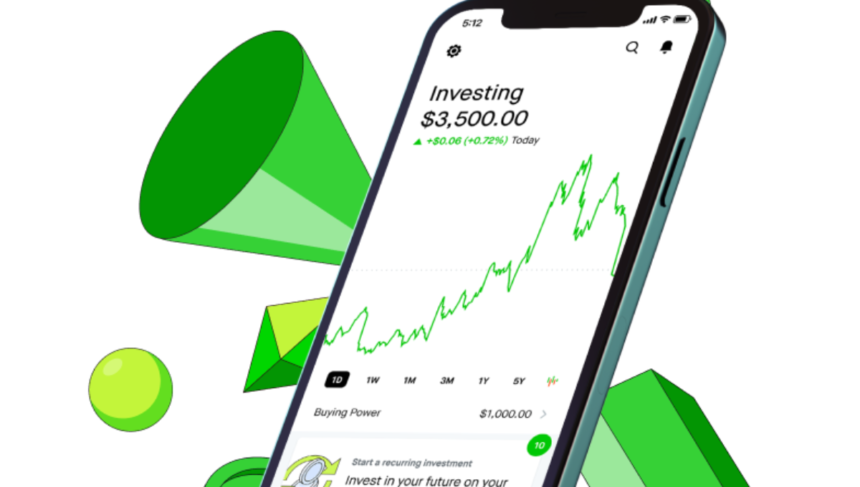Robinhood, the popular commission-free trading app, has revolutionized the way people invest in the stock market.
With its user-friendly interface and zero-commission trades, it has attracted millions of users, particularly among the younger generation.
However, many people wonder how Robinhood generates revenue since it doesn’t charge trading commissions.
In this article, we’ll explore the various ways Robinhood makes money and how it has disrupted the traditional brokerage industry.
Payment for Order Flow (PFOF)
One of the primary sources of revenue for Robinhood is Payment for Order Flow (PFOF). This practice involves routing customer orders to high-frequency trading firms or market makers who execute the trades.
In exchange, these firms pay Robinhood a small fee for each order directed to them.
PFOF is a controversial practice, as it raises questions about potential conflicts of interest and whether customers are getting the best execution prices.
However, Robinhood argues that PFOF allows them to offer commission-free trades, and they always route orders to the venues that provide the best execution quality.
Premium Subscriptions: Robinhood Gold
In addition to its standard brokerage services, Robinhood offers a premium subscription called Robinhood Gold.
This service provides users with access to professional research tools, Level II market data, and the ability to trade on margin.
Robinhood Gold comes with a monthly fee, ranging from $5 a month or $50 per year.
By offering this premium service, Robinhood generates recurring revenue from its more active and sophisticated investors.
Interest on Cash Balances
Like traditional brokers, Robinhood earns interest on the cash balances held in customer accounts.
When users deposit money into their Robinhood accounts, the company invests these funds in interest-bearing instruments, such as money market funds or government securities.
While the interest rates offered by Robinhood may not be as high as those offered by traditional banks, the company can still generate substantial revenue from the collective cash balances of its millions of users.
Cryptocurrency Trading Fees
In recent years, Robinhood has expanded its offerings to include cryptocurrency trading. While the company does not charge commissions for buying and selling cryptocurrencies, it does generate revenue through the spread between the bid and ask prices.
When a user places an order to buy or sell a cryptocurrency, Robinhood acts as the counterparty, executing the trade at a slightly higher (for buys) or lower (for sells) price than the market rate. This spread represents Robinhood’s profit on the transaction.
Lending Securities
Robinhood also generates revenue through securities lending. This practice involves lending out shares held in customer accounts to other institutions, such as hedge funds or market makers, in exchange for a fee.
Securities lending is a common practice in the financial industry and helps facilitate short selling and other trading strategies.
Robinhood shares a portion of the fees generated from securities lending with its customers, providing an additional source of income for both parties.
Initial Public Offering (IPO) Access
In recent years, Robinhood has offered its users the opportunity to participate in initial public offerings (IPOs) of high-profile companies.
While the process of allocating IPO shares is not entirely transparent, Robinhood likely generates revenue by receiving a portion of the underwriting fees or through other arrangements with the investment banks managing the IPOs.
Future Revenue Streams
As Robinhood continues to grow and evolve, the company is exploring additional revenue streams to diversify its business model. Some potential areas of expansion include:
- Banking Services: Robinhood has obtained regulatory approval to operate as a bank, which could allow it to offer services such as checking accounts, loans, and other financial products.
- Wealth Management: With its large user base, Robinhood could potentially offer wealth management services, including investment advice and portfolio management, for a fee.
- Advertising and Partnerships: Robinhood could leverage its platform to generate revenue through targeted advertising or partnerships with other financial services companies.
- International Expansion: As the company gains a stronger foothold in the US market, it may explore expanding its services to other countries, potentially generating new revenue streams.
Conclusion
Robinhood has disrupted the traditional brokerage industry by offering commission-free trades and appealing to a younger, tech-savvy demographic.
While the company’s revenue model may seem unconventional, it has successfully leveraged various strategies, such as Payment for Order Flow, premium subscriptions, interest on cash balances, and cryptocurrency trading fees, to generate income.
As Robinhood continues to evolve and explore new revenue streams, it will be crucial for the company to maintain transparency and ensure that its practices align with the best interests of its customers.
Nonetheless, Robinhood’s innovative approach has challenged the status quo and democratized access to the financial markets, empowering a new generation of investors.





